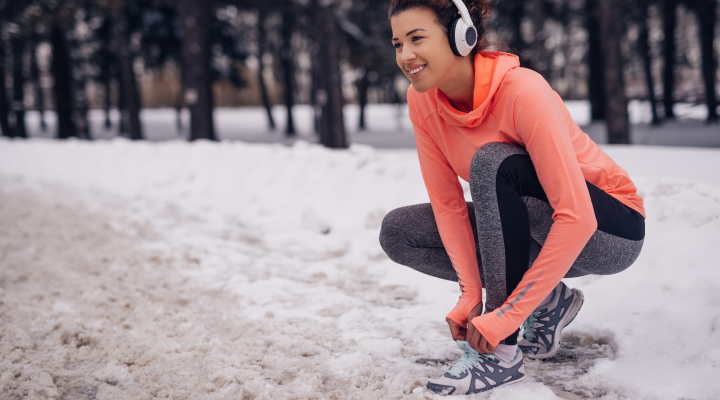
Many of us have heard throughout our lives that candy is bad for the teeth. Our brains are wired to crave sugar, but our teeth and overall health are harmed by it. Actually, our teeth are affected by the bacteria in our mouths that feed on the sugar we eat. And those bacteria excrete acid, and acid is what causes cavities.
From cereals to sweets, we associate the bacteria that cause cavities with foods that are bad for us. Unfortunately, that isn’t always true. Sometimes what we eat to support healthy habits – like cycling,swimming, and running – can also ruin our teeth. When you’re exercising for long periods, you’ll often eat an energy bar, energy gel pack, or have a sports drink with electrolytes. Unless you’re also stopping to rinse with water and brush your teeth, your mouth is bathing in sugars for as long as you wait to brush. Learn about the effects endurance foods and drinks can have and how to combat them for better oral and overall health.
Studies Show Many Endurance Athletes are Ruining Their Teeth
The foods and drinks that athletes consume during exercise contain a lot of sugar. The common culprits are:
- Powdered mixes,
- Sports drinks,
- Energy gel packets,
- Energy chews,
- Granola bars
- Candy bars,
- Fruits such as bananas and strawberries.
Athletes require sugars and carbohydrates to stay properly fueled. For many weekend warriors and amateur athletes though who aren’t as active, they’re not always needed or recommended. The way products are marketed plays a significant role when it comes to people buying them who may not need them. Consequently, many athletes consume these products, and studies show higher rates of dental erosion and caries in endurance athletes compared to the general population.
When was the last time you consumed an electrolyte sports drink or energy gel packets during a ride, run, or swim? Did you think about brushing your teeth right after? When consuming these energy-boosters, it’s extremely important to remember that they contain as much more sugar than even some sweets.
How Much Sugar is in Athletes Foods and Drinks?
For context, the American Heart Association recommends no more than 36 grams of sugar for men and no more than 25 grams of sugar for women a day. Since 4 grams equals one teaspoon, that’s 9 teaspoons and 6 teaspoons respectively. These amounts are recommended for food and drinks with added sugars, not for the natural sugars found in fruits and vegetables.
Here are some sugar levels in some popular food and drinks that many endurance athletes consume regularly:

According to Registered Dietitian and Sports Nutritionist Jackie Robertson of eNRG Performance, “most amateur athletes consume too much sugar for what their body and muscles need during normal endurance exercise. If you’re only doing 1-2 hours of exercise or less, you will most likely be fine by eating a good meal one and a half to two hours before exercise and carrying along some water. Any workout three hours or more or where you’re actually competing, you will want to have some extra carbs and sugar along to stay fueled. But, everyone is different. It’s always best to consult a nutritionist or dietitian to find out what you and your body actually need. You will be better fueled, and will probably save some money too.”
How Sugar and Exercise Can Be Bad on Athlete’s Teeth
It’s easy to see how sugar consumption adds up fast if you consume any of these items during endurance activities. Hopefully, this information got you thinking about how you take care of your teeth after or even during a run, ride, or swim and where you consume sugar that feed the bacteria that causes cavities.
Since you’re aware of the effects sugar has on your oral health, here is why they increase when you’re exercising:
- Saliva depletion – When we exercise, our mouths get dry. Saliva is a natural barrier against disease in our mouths. It helps prevent cavities and keeps the surface of your mouth clean. Without it, our teeth and gums are more susceptible to oral diseases.
- Dehydration – Because our bodies use water to produce sweat and we breathe more heavily during exercise, it’s harder to produce saliva.
- Time – If you’re exercising for an extended period, you probably didn’t bring your toothbrush along. It doesn’t take long for plaque to begin forming on your teeth after consuming sugar. So, get in the habit of brushing well after long work-out periods.
Top 5 Ways to Fight Sugar While Exercising
Awareness will help you combat the amount of sugar you take in during exercise. Here are some other tips to help offset tooth decay and improve the health of your teeth:
- Drink water or rinse your mouth out with water to remove bacteria-causing sugar. This will prevent your mouth from drying out.
- Chew sugar-free or Xylitol gum after consuming sugar. Not only will this aid in saliva production, but it will also help clean the sugar from your teeth and mouth.
- Carry a toothbrush and toothpaste in your athletic bag. If you aren’t going to be home for a while, you can always brush your teeth in a nearby bathroom, or even in your car when your athletic activity is over.
- Eat less sugar. Aim for sugar-free energy products. While this won’t necessarily eliminate the need to brush after, less sugar will aid in better smile health when you’re exercising. Try making energy snacks at home that don’t require a lot of added sugar. Here are some other recipe ideas.
- Brush twice per day and floss at least once a day. Of course, visit your dentist for regular cleanings and checkups twice a year.
The moral of the story is to realize and recognize when you’re eating food, snacks, and drinks that are high in sugar. So read the nutrition labels on the foods you buy and avoid foods with sugar listed as one of the first five ingredients. Change your snack routine to include vegetables, cheese, nuts and other healthy choices. Drink water instead of sugary drinks. Brush your teeth twice a day and floss at least once a day.
Your teeth will thank you and your overall health will improve. There will even be fewer bacteria parties on your teeth!
Learn more about our dental plans that will give you the best smile while you practice your exercise of choice.

